Everything Everywhere All At Once directors on queerness, unconditional love, and laundromats
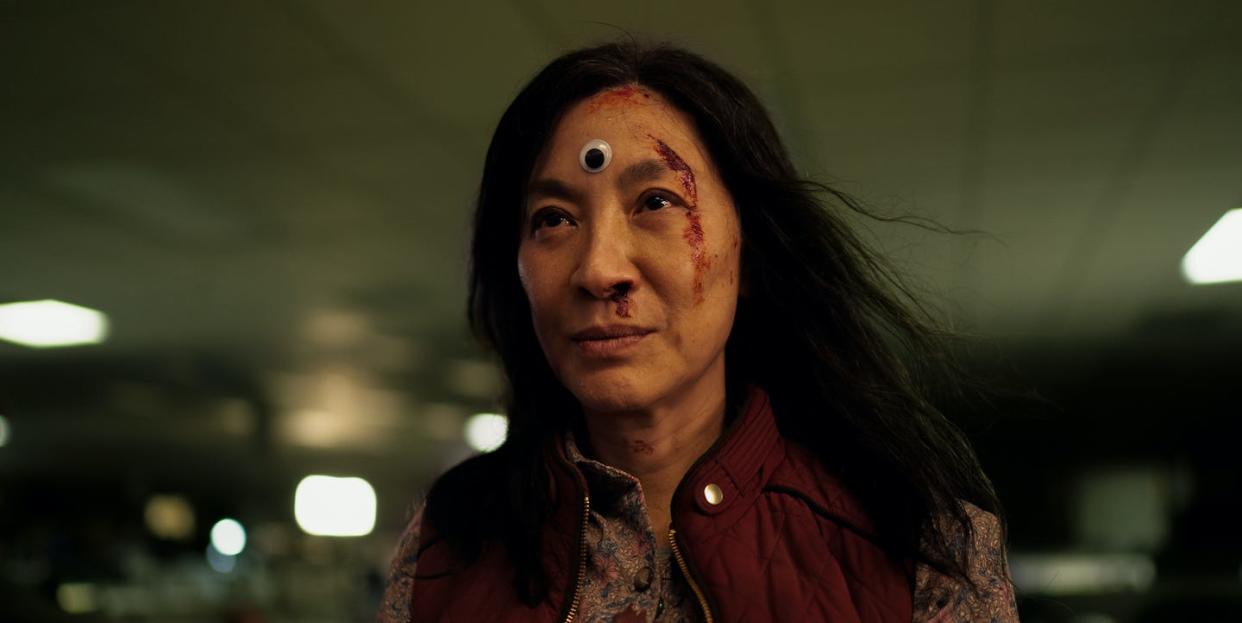
- Oops!Something went wrong.Please try again later.
- Oops!Something went wrong.Please try again later.
Everything Everywhere All At Once is being lauded, and deservedly so. The film follows Evelyn (Michelle Yeoh) who, while trying to save her laundromat from IRS seizure, becomes wrapped up in an interdimensional rupture that unravels reality. Evelyn must use her multiversal powers to stop the end of the world, all while trying to repair her relationship with her daughter Joy (Stephanie Hsu).
It's a big undertaking and writing-directing duo Daniels (Daniel Kwan and Daniel Scheinert) manage to deliver on the impressive, chaotic premise the trailer promised. Ahead of the movie's UK debut, Digital Spy sat down with Daniels to discuss themes of queerness, ADHD and The Runaway Bunny.
Everything Everywhere All At Once spoilers follow.
Have you read The Runaway Bunny?
Daniel Kwan: A long time ago!
Because that is what this film is — in a really good way!
Daniel Scheinert: I do remember when writing, thinking about the idea of unconditional love and how we throw that phrase around like it's a no-brainer.
But what a huge ask! No conditions? We all have conditions. Unconditional love is such a huge aspiration. A beautiful sentiment but not easy.
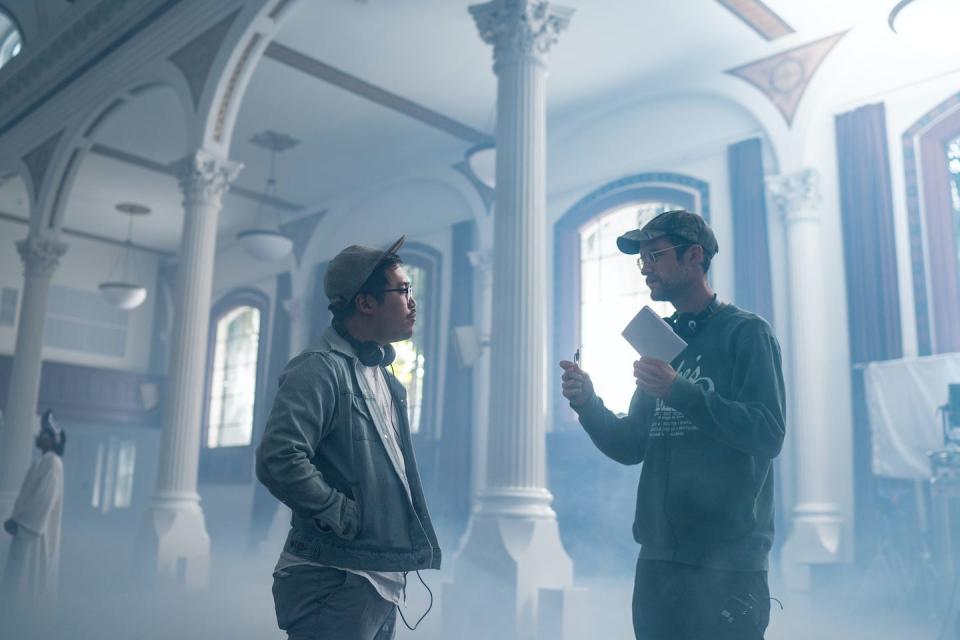
Or to put into practice.
DK: It's actually kind of not realistic. Unconditional love was originally something that was reserved for conversations about God. The New Testament talks about three different versions of love and one of them was 'unconditional', and that was mostly reserved for conversations with something cosmic. Something impossibly transcendent.
And I still believe that. I think even within our movie the idea of unconditional love... The only reason why [Evelyn and Joy] can [have] that is because they have this strange superpower where they can exist in every place at once.
I don't think it's realistic. But I do think it's something that we should we tell in these stories so we can at least have a North Star. In some ways. If you are chasing unconditional love, you're not unconditionally loving yourself.
What do you see as the nexus point, the sort of centre of the film that has the gravitational pull around which all the themes pivot?
DK: Trying to exist and live in the chaos of modern life. That was the thing that we were trying to capture. There's no bad guy in the movie except for chaos itself — existence, so we could touch all those things: intergenerational [issues], sexuality, queer identity, Asian American identity, taxes!
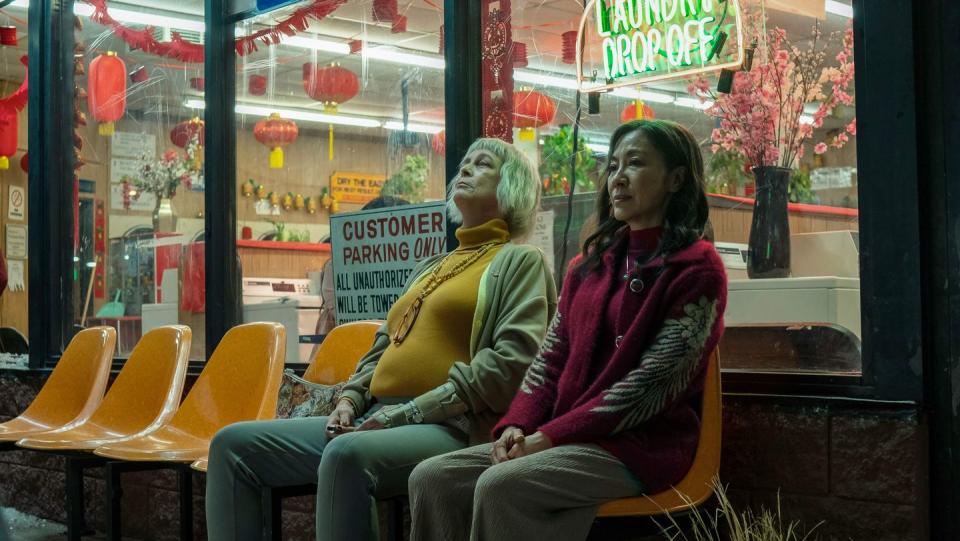
Related: Everything Everywhere All At Once directors are glad to talk about 'Big Nose' controversy
It's almost like people are like, 'how did you fit everything into this thing' because it should be a mess. But at the same time, when that was the point, it gave us licence to throw everything into it.
It was supposed to be overwhelming. It was supposed to be chaos and this film was trying to understand how to thrive in it.
DS: If you're making a movie about chaos, then you have permission to throw in the most chaotic things, because you're just trying to illustrate this idea. So you need a lot.
We started talking about the immigrant experience as something that we hadn't chewed on much and there's so much specificity there. And we're like 'Who would we cast? Oh, maybe all our favourite kung fu actors on the planet. Okay, check!' And it kind of went from there.
Seeing Doctor Strange in the Multiverse of Madness after Everything Everywhere All at Once —
DK: You're confusing the two movies now? [laughs]
Yes! No [laughs] — what stood out was how Doctor Strange… sort of says you are always who you are, but your film says the opposite – that the infinite what-ifs lead to infinite versions of the self. So where do you fall personally on that spectrum?
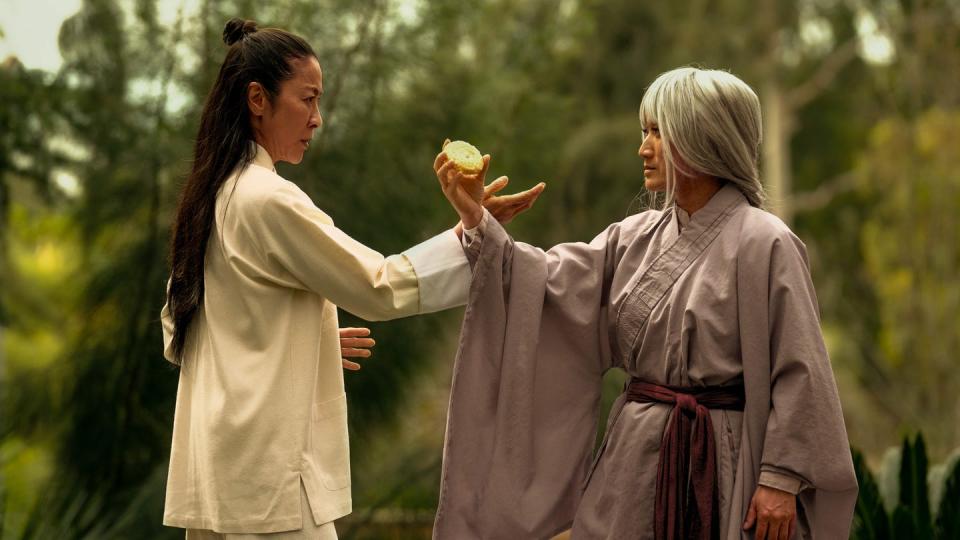
DK: Yeah, it reminds me of the nature versus nurture thing. Have you seen Three Identical Strangers?
Yes! Oh my god!
DK: That to me is one of the best explorations of that because it holds both. You can't say one or the other. It's not it's not really a debate.
There's actually this incredible art project where a typographist took different typefaces and overlaid them, so you'd get all these A's and it's a fuzzy, cloudy mess. But at its core, you still see an A. It's this is a really beautiful, strange, metaphor for what you're talking about.
DS: I don't know if my brain just is going to like... in a lot of ways this movie ended up being an ode to nihilism, although it is a very optimistic and hopeful hug of a movie — hopefully by the end.
But there's something about the idea of infinity that kind of gives me permission to appreciate what you have and who you are. Because it's a statistically random thing. It's just like, oh, wow, what a little miracle. This is random. And meaningless. And I find that kind of beautiful.
The moment when Evelyn "comes to terms" with Joy being queer — it's not the cure-all.
DK: Exactly, no.
That was such a beautiful thing to say within the film.
DS: Thank you.
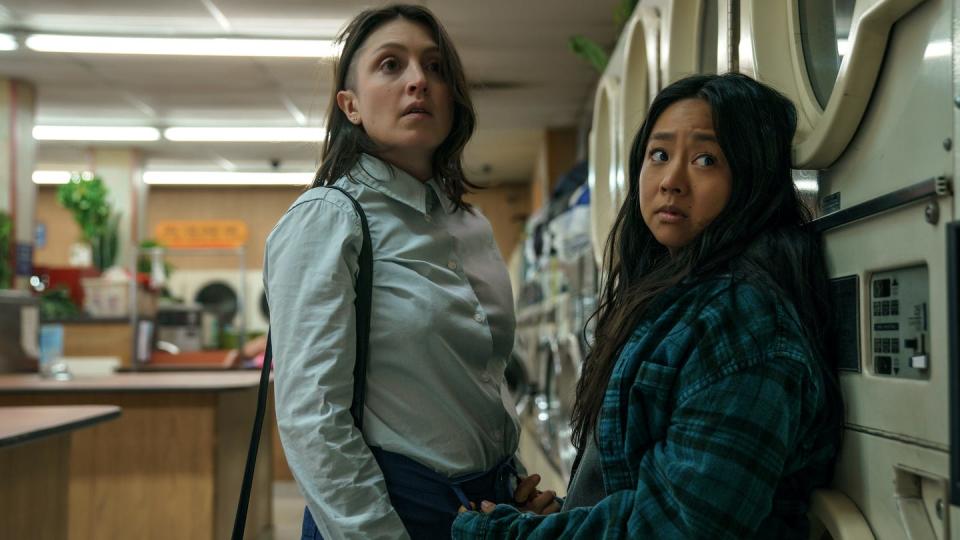
Because in so many movies that moment of acceptance is the panacea for all the character's problems. And it really — that's not the issue. The issues are so much bigger than her queerness.
DS: Exactly.
DK: We wanted to make a film in which queerness was important to her identity but it wasn't her identity. She's so much more than that. And that was the problem was actually not necessarily Evelyn coming to terms with Joy's queerness, but just the mother trying to reconcile all of her. All of it.
How did you decide on setting it in a laundromat?
DK: My grandfather on my dad's side came from outside of Hong Kong and like a lot of the people who moved to New York Chinatown, they started laundromats. So my dad grew up in an apartment above the laundromat.
So a lot of that was just laziness. It felt like a really simple thing to translate into the film. But then again, I do think that we were searching for the mundanity of life and laundry and taxes just felt...
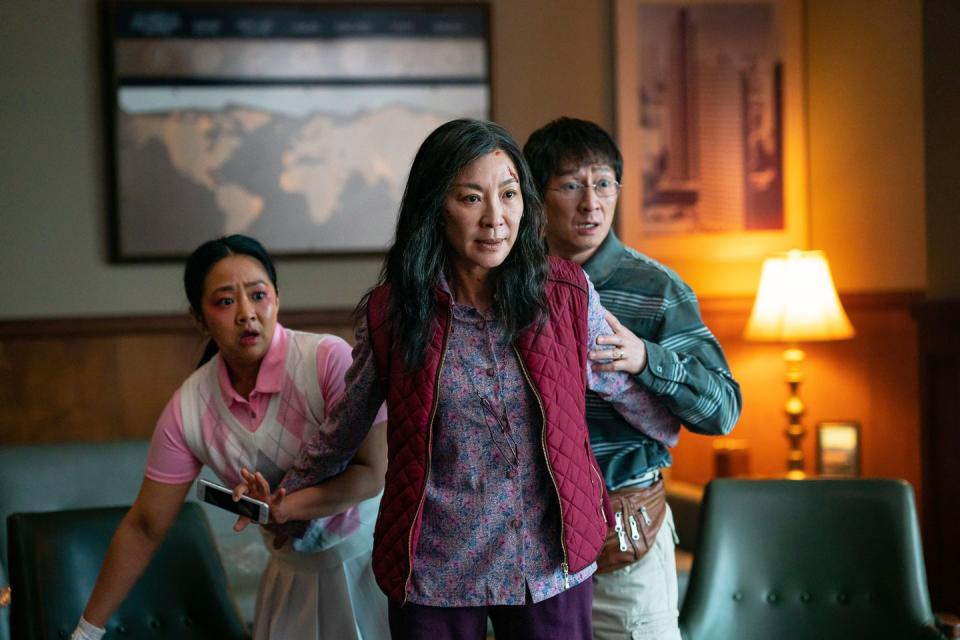
It's also funny because I didn't realise this when we started writing this but I have ADHD and when you talk to anyone with ADHD, the bane of their existence is laundry and taxes. [Other people] go: 'Oh, everyone procrastinates laundry and taxes' but the difference is the act of doing your laundry becomes this existentially terrifying thing where your brain starts to spiral and say, 'I'm going to do this for the rest of my life? I would rather die.'
As an artist, some of it is very intentional, and some of it is very much the universe just throwing stuff at you. You're drawn to things that you don't know why.
DS: I always like sneaking in ADHD compliments as well, because we learned so much about it through making this. I don't have [ADHD] but Dan and people with ADHD a lot of times struggle to do things that they're not interested in.
There are two sides to that coin. The fact that [we had] this built-in barometer of 'it's getting hard because I'm not interested. We need to change something to stay interested and engaged and passionate, or else we can't focus on it' [was great].
So yes, laundry is hard but makes you a better filmmaker.
Everything Everywhere All At Once is now out in US cinemas, and is out in UK cinemas on May 13
You Might Also Like

